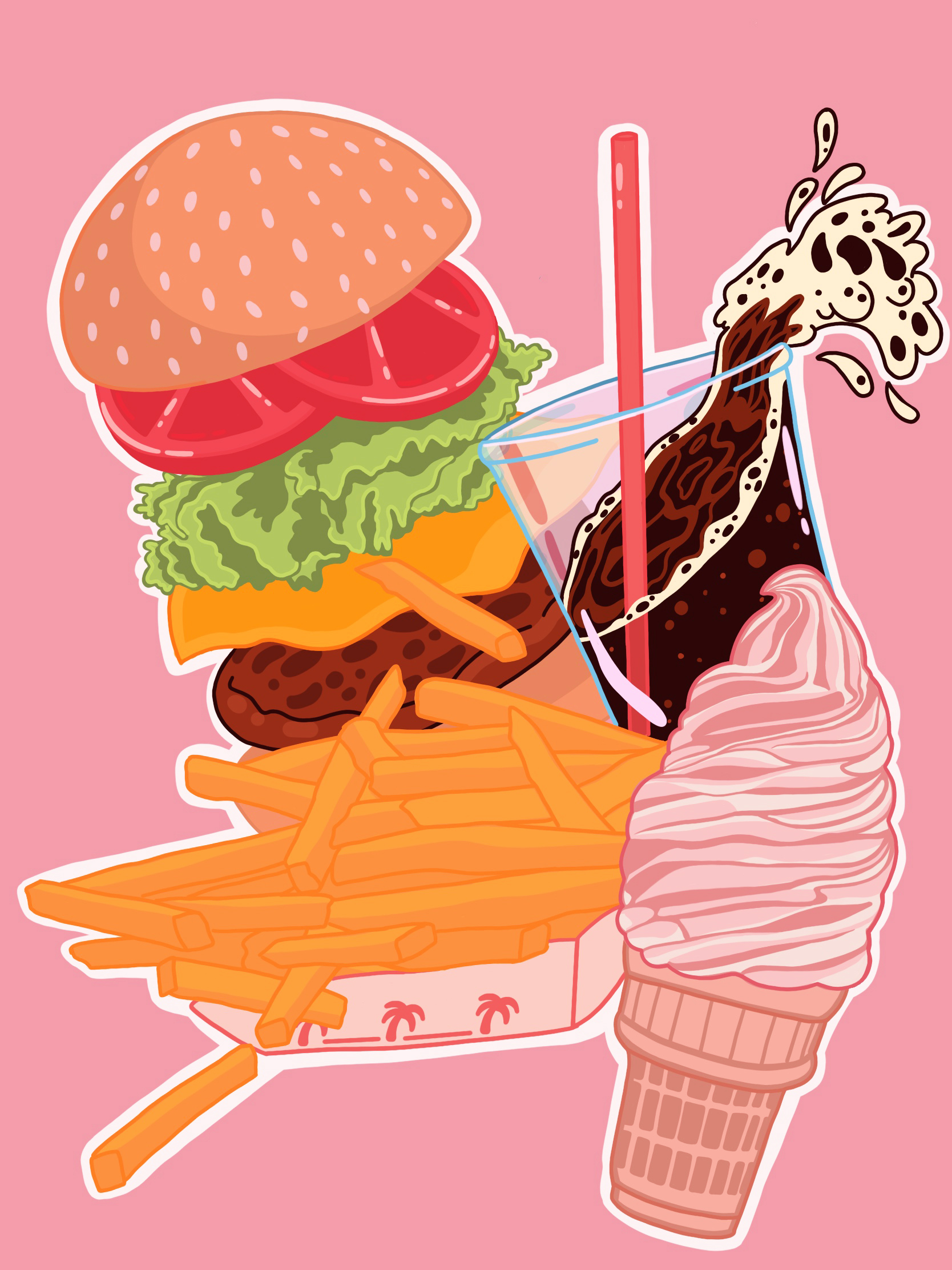Campus Queries: What drives us to eat for pleasure?

(Nicole Anisgard Parra/Daily Bruin)
By Nidhi Upadhyay
Sept. 21, 2018 3:04 a.m.
Campus Queries is a series in which Daily Bruin readers and staff present science-related questions for UCLA professors and experts to answer.
Q: Why do we eat for pleasure, instead of for necessity?
A: A recent UCLA study suggests the answer lies with the microorganisms that populate the human gut.
The study, an interdisciplinary collaboration between the Oppenheimer Center for Neurobiology of Stress and Resilience and the UCLA Microbiome Center, found a connection linking levels of the metabolite indole – a compound produced when a certain amino acid is processed by gut bacteria – and the brain’s reward system.
This mechanism drives humans to look for food and, normally, is attuned to fulfill our homeostatic needs, said Emeran Mayer, senior author of the study and a professor at the David Geffen School of Medicine. That is, while food intake in general is incentivized and rewarded by the brain, this is simply the body’s mechanism for ensuring it receives the necessary nutrients.
Mayer said appetite is regulated by two opposing groups of hormones in the gut. Ghrelin, a hormone produced mainly by the stomach, stimulates the appetite and causes hunger. On the other hand, the small intestine produces so-called satiety hormones that signal to the hypothalamus in the brain to decrease hunger.
“Normally, this homeostatic, hypothalamic-based system is the main driver for when we feel like eating,” Mayer said. “That system has evolved over millions of years, perfected to provide just enough calories that we eat in order to maintain our homeostatic state, maintain body weight. It’s tightly regulated, so if we exercise a lot we’ll eat more to meet the metabolic demands.”
The problems begin when this finely tuned homeostasis is disturbed. Eating purely for pleasure – hedonic eating – happens when there is an alteration in the reward system.
“In the modern world there’s something that’s happened so our food intake is no longer driven primarily by homeostatic needs,” Mayer said. “For a lot of people, it’s really driven by all the visual and extraintestinal stimuli that we are exposed to in advertisements frequently.”
As it stands, the exact causes for such an alteration are difficult to pinpoint, said Arpana Gupta, an author of the study and an assistant professor at the School of Medicine.
“There is a growing body of literature that shows that there’s this bidirectional communication between the brain and the gut microbiome,” Gupta said. “The brain communicates with the gut, and the gut communicates with the brain. We don’t know exactly what comes first – we just know that there’s this loop.”
Notwithstanding whether the disturbance begins in the brain or the gut, pleasure-driven eating could have harmful consequences, including food addiction and weight gain to the point of obesity. Food addiction – which has been shown to engage the same neural systems as other substance abuse disorders like alcoholism and drug addiction – happens when the hedonistic instinct that drives food intake overrides the homeostatic system that aims to provide nutrients and maintain body weight, Gupta said.
“There’s insufficient amounts of dopamine being generated, so people that are addicted to food keep striving for more and more food intake to generate the same amount of dopamine to feel satisfied,” Mayer said. “It’s the same thing with substance abuse.”
The study does not just establish a connection between indole metabolite levels and increased reward signals, and therefore hedonic eating and food addiction – it also associates these parameters with obesity. A causal link between food addiction and obesity has not been scientifically established by the study in question nor by previous research, but Mayer said the correlation has been shown to increase with the degree of obesity.
“With increasing obesity you have increased immune activation in your body and that also affects the hypothalamus and makes it less sensitive to the satiety hormones,” Mayer said. “With increasing obesity and increasing low-grade immune activation in the body, we kind of knock out inhibitory satiety mechanisms and the dopamine-driven system takes over more and more.”
The modern world emphasizes the aesthetic and sensuous facets of food, Mayer said, but the gut-level imbalances and addictive pathophysiology that seem to underlie hedonic eating speak to its harmful side. That said, the unfolding discoveries of how the brain-gut connection might affect the body indicate potential avenues for addressing these problems in the future.
With the exception of bariatric surgery, which cannot be implemented in every case, an effective therapy resulting in long-lasting, significant weight loss for people who are obese has yet to be developed, Mayer said. Although human microbiota research is not nearly there yet, he said it represents promise for not only people with food addiction and obesity, but perhaps even other forms of substance abuse.
“We really don’t know if any of these fancy hypotheses will turn out to be anything, if this is going to be the breakthrough in obesity treatment,” he said. “The fact that speaks in favor of it is there’s a much larger number of microbial genes than human genes. … And none of these genes or metabolites have been taken into account in our modern medical conceptualization of pathophysiology.”
Gupta said there is wide-ranging research pointing to associations of the brain-gut microbiome loop to many other diseases, ranging from gastrointestinal disorders, such as irritable bowel syndrome, to Alzheimer’s disease.
“This is where the future is going,” Gupta said. “Because it’s a systems biology approach, you’re looking comprehensively at the brain as well as the rest of the body, so it’s a nice way to take this holistic view of disease. … This is the future of science, this is the future of medicine.”


